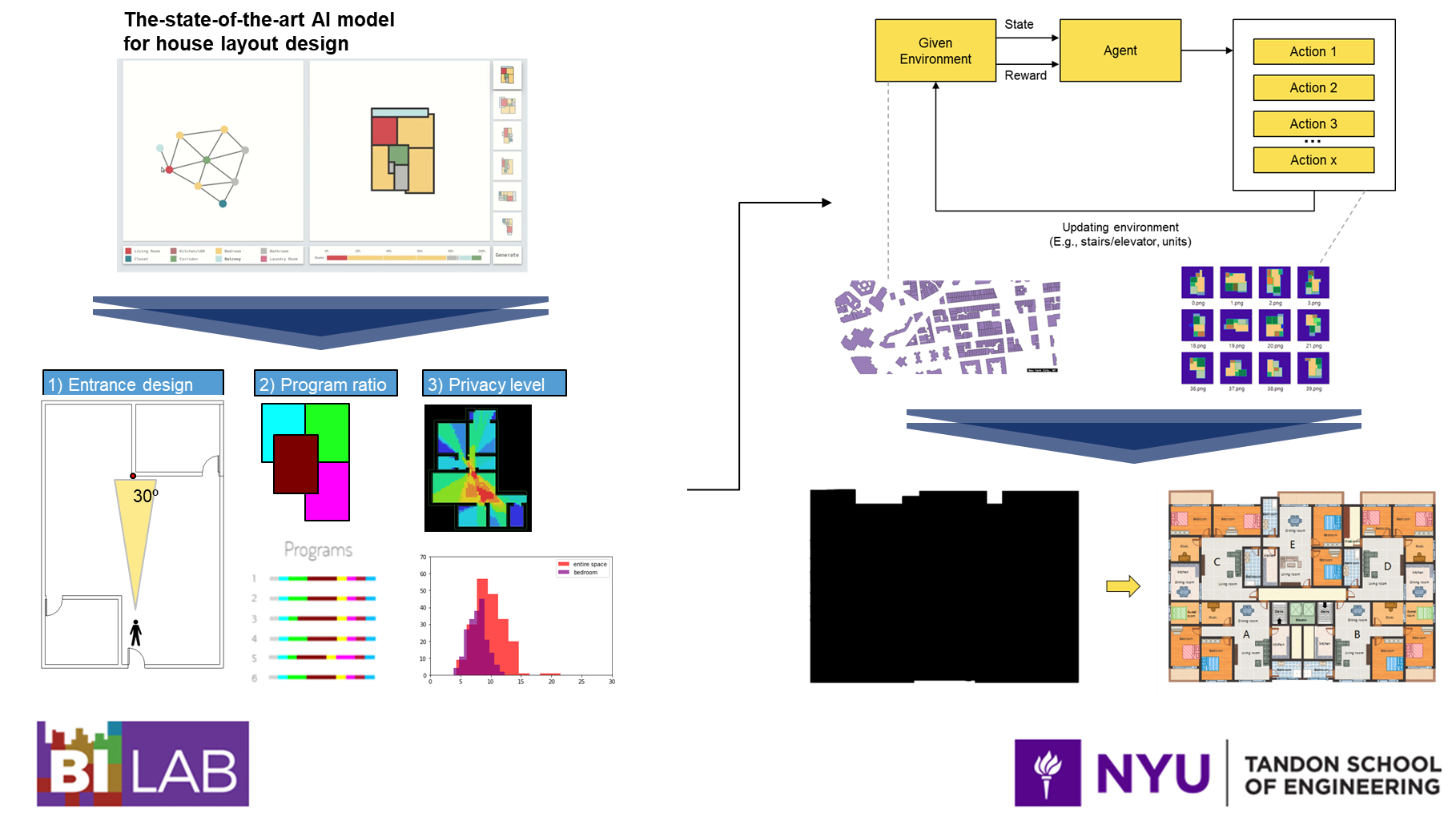 The prevailing construction of most residential homes today relies on standardized plans, often bypassing the expertise of professional architects who, in 2023, derived only 8% of their billings from the single-family residential sector. Given that urban residents spend most of their time indoors, thoughtful, human-centric architectural design is essential for occupant well-being and satisfaction. Current computational design tools, including state-of-the-art deep learning models, struggle to capture the implicit architectural knowledge that governs spatial organization, privacy, and connectivity, limiting their practical usefulness. Furthermore, architects lack flexible, transparent tools capable of rapidly generating and evaluating diverse, high-quality design options that align with complex design intentions. This project introduces novel solutions to these challenges: RL-Plan, a deep reinforcement learning-based floor plan generator that dynamically incorporates spatial hierarchies and domain knowledge to create contextually sound layouts; and WELLView, a 3D computational framework optimizing window design by integrating real-world urban data to enhance occupants’ access to restorative natural views—an aspect often overlooked in automated design. By bridging AI and architectural practice, this work advances automated, evidence-based design workflows that improve early-phase design efficiency, support nuanced decision-making, and promote occupant well-being and property value, ultimately paving the way toward more intelligent, adaptive, and human-centered built environments.
The prevailing construction of most residential homes today relies on standardized plans, often bypassing the expertise of professional architects who, in 2023, derived only 8% of their billings from the single-family residential sector. Given that urban residents spend most of their time indoors, thoughtful, human-centric architectural design is essential for occupant well-being and satisfaction. Current computational design tools, including state-of-the-art deep learning models, struggle to capture the implicit architectural knowledge that governs spatial organization, privacy, and connectivity, limiting their practical usefulness. Furthermore, architects lack flexible, transparent tools capable of rapidly generating and evaluating diverse, high-quality design options that align with complex design intentions. This project introduces novel solutions to these challenges: RL-Plan, a deep reinforcement learning-based floor plan generator that dynamically incorporates spatial hierarchies and domain knowledge to create contextually sound layouts; and WELLView, a 3D computational framework optimizing window design by integrating real-world urban data to enhance occupants’ access to restorative natural views—an aspect often overlooked in automated design. By bridging AI and architectural practice, this work advances automated, evidence-based design workflows that improve early-phase design efficiency, support nuanced decision-making, and promote occupant well-being and property value, ultimately paving the way toward more intelligent, adaptive, and human-centered built environments.
Park, K., and Ergan, S. (2025). “Quantification of the impact of street design features on restorative quality in urban settings.” Elsevier Sustainable Cities and Society, 121(March), 106216. DOI: https://doi.org/10.1016/j.scs.2025.106216. IF:10.5. SCIE.
Park, K., Ergan, S., and Chen, F. (2024). “Quality assessment of residential layout designs generated by relational Generative Adversarial Networks (GANs).” Automation in Construction, 158, 105243. DOI: https://doi.org/10.1016/j.autcon.2023.105243. IF: 10.3, SCI. Faculty collaborator: C. Feng from NYU.
Park, K., and Ergan, S. (2024). “An approach for domain-informed generative architectural design.” ASCE International Conference on Computing in Civil Engineering (i3CE), Pittsburgh, PA, July 28-31, 2024. (Also won the Best Poster award).